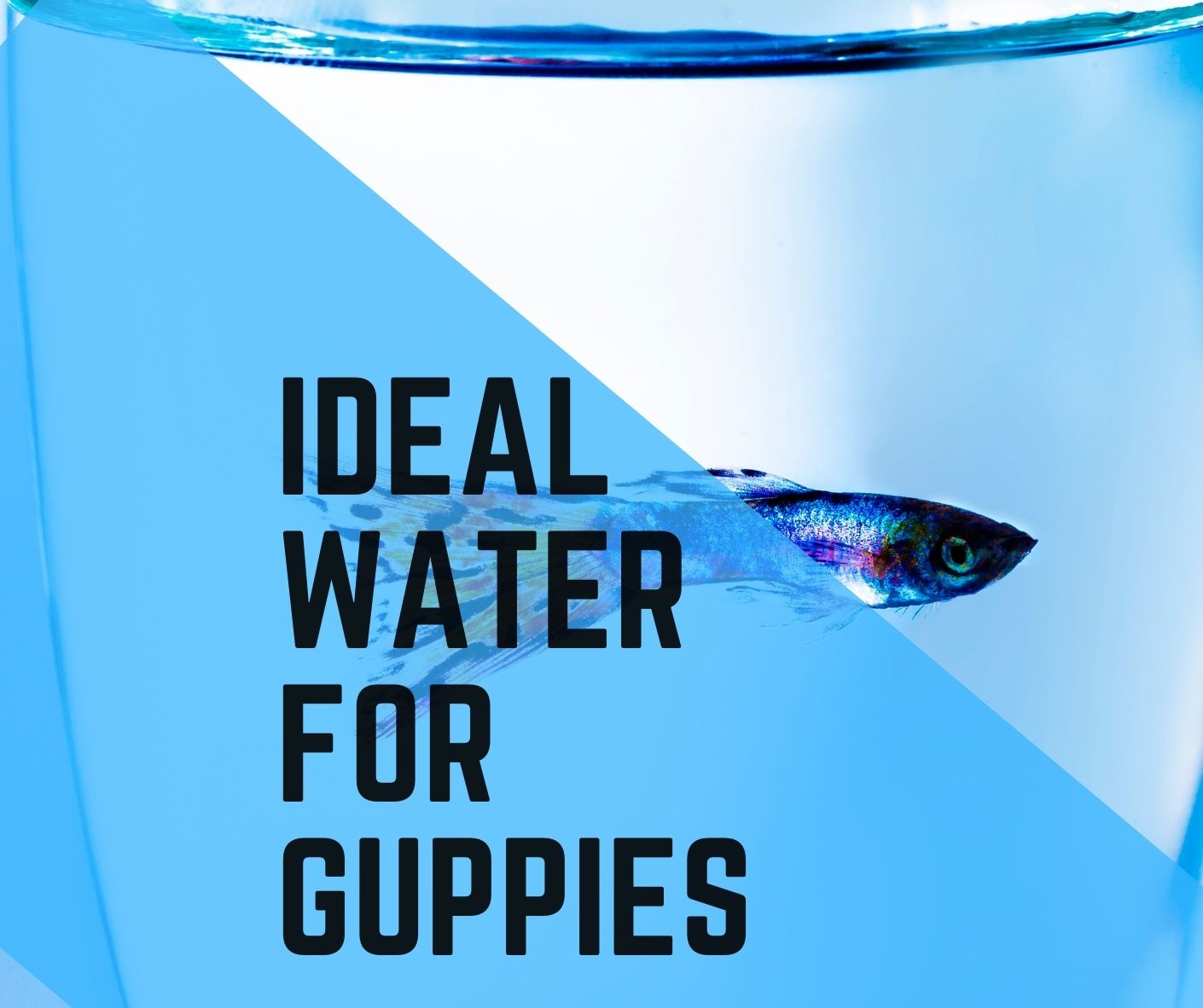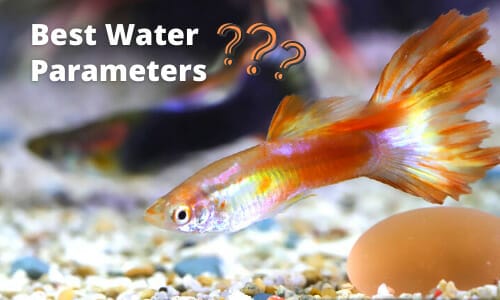Water Parameters For Guppies
Guppies are one of the most popular aquarium fish, known for their beauty, personality, and ease of care. However, keeping these fish healthy and stress-free requires attention to detail, particularly when it comes to water parameters. In this article, we'll explore the important role of water parameters in the life of guppies and discuss the best practices for achieving optimal conditions for these freshwater fish.
Pain Points Related to Water Parameters for Guppies
If you're a guppy owner, you know that these fish can be sensitive to changes in their environment, including water quality. Maintaining the right water parameters is essential to preventing health issues such as stress, fin rot, and bacterial infections. Unfortunately, achieving proper water conditions can be challenging, particularly for beginners who may not be familiar with the specific needs of these fish. Factors such as pH, temperature, hardness, and ammonia levels all play a crucial role in the health and well-being of guppies.
Understanding the Target of Water Parameters for Guppies
Before we dive into the specifics of water parameters, it's important to understand the target conditions that we're aiming for. To keep guppies healthy and happy, we want to replicate the conditions of their natural habitat in the wild. Guppies are native to Central and South America, where they live in shallow, slow-moving waters such as streams, rivers, and ponds. In general, water in these regions is slightly alkaline, has a pH between 7.0 and 8.0, and a temperature of 75-82℉. Hardness levels should be moderate to hard, and ammonia levels should be kept at zero.
Summary of Main Points Related to Water Parameters for Guppies
To summarize, achieving optimal water conditions for guppies requires maintaining proper pH, temperature, hardness, and ammonia levels. These conditions should mimic the natural habitat of guppies in Central and South America, with a slightly alkaline pH between 7.0 and 8.0 and a temperature of 75-82℉. Hardness levels should be moderate to hard, and ammonia levels should be kept at zero to prevent health issues such as stress, fin rot, and bacterial infections.
Why is pH Important for Guppies?
pH is one of the most critical water parameters when it comes to keeping guppies healthy. pH measures the acidity or alkalinity of water on a scale from 0 to 14, with a pH of 7 being neutral. Guppies thrive in slightly alkaline water, with a pH between 7.0 and 8.0. Maintaining a stable pH level in your aquarium helps to prevent stress and disease in your fish and promotes healthy growth and breeding.
I remember when I was a beginner guppy owner, I struggled with pH fluctuations in my aquarium. I noticed that my fish were becoming stressed and lethargic, and their colors were fading. After some research, I discovered that my pH was too low, and I needed to add a buffering agent to raise it to the optimal level. Once I stabilized the pH level in my tank, my fish became much more active and colorful, and their health improved overall.
How Does Temperature Affect Guppies?
Temperature is another crucial water parameter to consider when caring for guppies. These fish are tropical, and they prefer water temperatures between 75-82℉. Maintaining a stable temperature in your aquarium helps to prevent stress and disease, and promotes healthy growth and breeding. Fluctuations in temperature can cause shock and stress to your fish, particularly if temperatures drop suddenly.
As a guppy owner, I've learned that a high-quality aquarium heater is essential for maintaining a stable water temperature in my tank. I make sure to place my heater in an area with good water flow, and I regularly monitor the temperature with a reliable thermometer to ensure a consistent environment for my fish.
Why is Hardness Important for Guppies?
Water hardness refers to the concentration of dissolved minerals such as calcium and magnesium in your aquarium water. Hardness levels affect the pH level of your water and can impact the health and growth of your fish. Guppies prefer moderately hard to hard water, with a total hardness between 100-250 ppm. Maintaining proper hardness levels in your water ensures that your fish have the necessary minerals to grow and thrive.
What is the Role of Ammonia in Guppy Health?
Ammonia is a toxic substance that can quickly build up in your aquarium if left unchecked. This compound is particularly harmful to fish, causing stress, fin rot, and bacterial infections. Keeping ammonia levels at zero is essential for maintaining a healthy environment for your guppies. Regular water changes, proper filtration, and careful feeding habits all play a role in preventing ammonia buildup in your aquarium.
Question and Answer Section
What pH level is best for guppies?
Guppies prefer a slightly alkaline pH level between 7.0 and 8.0. Maintaining a stable pH level within this range is crucial for keeping your guppies healthy and stress-free.
What temperature is ideal for guppies?
Guppies are tropical fish that prefer water temperatures between 75-82℉. Maintaining consistent water temperature in this range helps to prevent stress and disease and promotes healthy growth and breeding.
What is the best way to prevent ammonia buildup in my aquarium?
The best way to prevent ammonia buildup in your aquarium is through regular water changes, proper filtration, and careful feeding habits. Avoid overfeeding your fish, and test your water regularly to monitor ammonia levels.
Can I use tap water for my guppy aquarium?
Yes, tap water can be used for your guppy aquarium, but it may require treatment to remove chlorine, chloramines, and heavy metals. Using a water conditioner can help to neutralize these chemicals and make your tap water safe for your fish.
Conclusion
In conclusion, achieving optimal water parameters for your guppy aquarium requires attention to detail and a commitment to maintaining stable conditions. pH, temperature, hardness, and ammonia levels all play a crucial role in the health and well-being of your guppies. By understanding the target conditions of these fish and following best practices for water care, you can ensure that your guppies live long, healthy lives, and bring joy to your home.
Gallery
Best Water Parameters For Guppies (Ultimate Guide) - Aqua Goodness

Photo Credit by: bing.com /
Do Guppies Die After Giving Birth? How To Reduce This Chance? - Feekify

Photo Credit by: bing.com /
What Are The Ideal Water Parameters For Guppies? - Guppy Fish Care

Photo Credit by: bing.com /
Best Water Parameters For Guppies (Ultimate Guide) - Aqua Goodness

Photo Credit by: bing.com /
About Guppy: Here The Ideal Water Parameters For Your Guppies
Photo Credit by: bing.com / water parameters guppy ideal guppies ph
